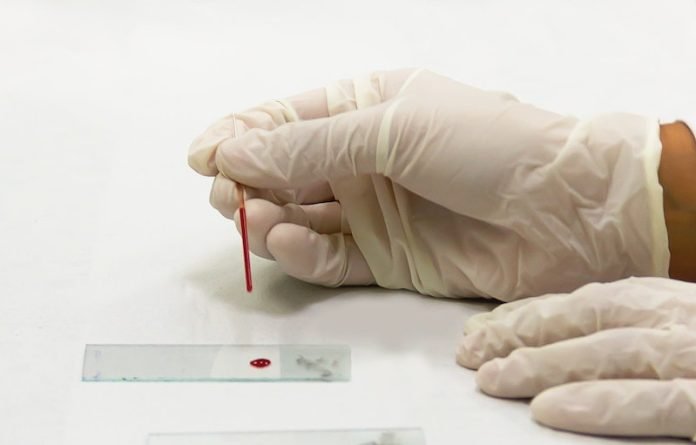
Despite significant advances, mortality from brain tumors remains high with five-year survival rates of 36%, according to the National Cancer Institute.
More accurate diagnoses might improve the situation, but tissue biopsies are invasive and can miss important information about a tumor’s makeup.
Imaging-based methods, meanwhile, do not offer sufficient sensitivity and resolution.
In a study from Toronto Metropolitan University and elsewhere, scientists have developed a biosensor that could help physicians precisely diagnose brain cancer from a minute blood sample.
To effectively treat brain cancer, physicians need to not only confirm the presence of a malignant tumor but also identify whether it originated there (primary tumor) or moved to the brain (secondary tumor) from other organs.
Physicians also need to know where in the organ the tumor is located.
Because no existing diagnostic technique can accomplish this feat without surgery or a painful spinal tap, the team wanted to develop a noninvasive test using a tiny amount of serum.
They used high-intensity laser beams to form 3D nickel-nickel oxide nanolayers on a nickel chip.
This process resulted in an ultrasensitive biosensor that allowed them to detect minute amounts of tumor-derived materials, such as nucleic acids, proteins and lipids, that made it through the blood-brain barrier into the circulation.
The sensor detected these components using a method known as surface-enhanced Raman spectroscopy, which generated molecular profiles, or fingerprints, for each sample.
The researchers then analyzed these profiles with a DEEP neural network to find evidence of a brain tumor and define its type, as well as predict its location within the brain.
Using the liquid biopsy platform, the researchers could detect brain cancer from just five microliters of blood serum, and they could distinguish it from breast, lung, and colorectal cancer with 100% specificity and sensitivity.
They had similar success distinguishing primary brain tumors from secondary tumors that had metastasized to the brain from the lung or breast.
Profile analysis also allowed the researchers to determine in which of nine brain compartments the tumor resided with 96% accuracy.
The noninvasive nature of the test should allow health care specialists to monitor cancer development over time so they can make better treatment decisions.
If you care about brain health, please read studies about a new drug to stop brain tumor growth, and Scientists find a new way to treat deadly brain tumors.
For more information about health, please see recent studies that Yale study finds the causes of cancer, and results showing supplements for brain health show no benefit.
The study was conducted by Srilakshmi Premachandran et al and published in ACS Nano.
Copyright © 2022 Knowridge Science Report. All rights reserved.



